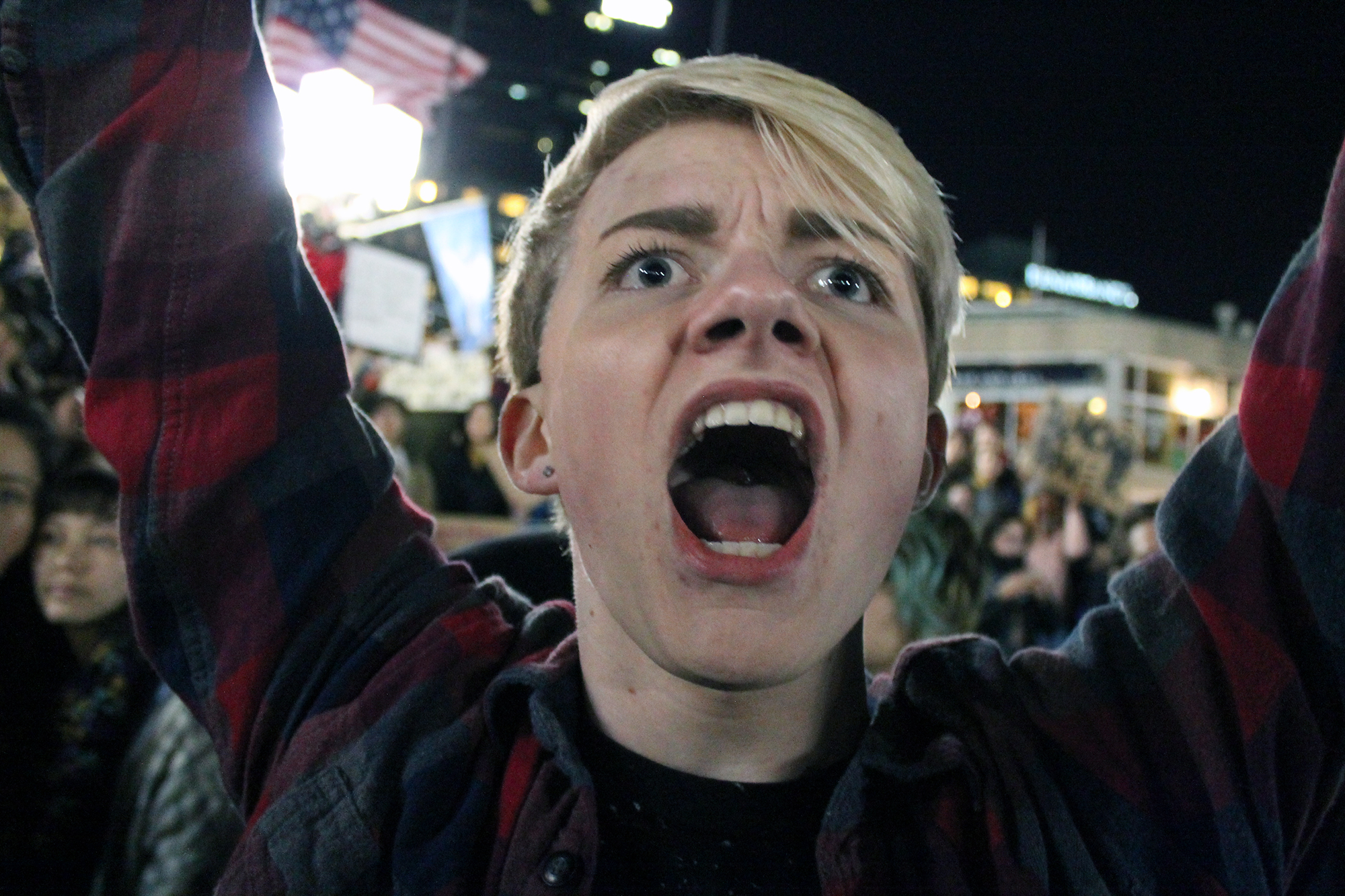Donald Trump will soon be gone. But the conditions that fueled his rise aren’t going anywhere.
Right-wing nationalism is intensifying. The wealth gap between the rich and poor is growing. The percentage of Americans in unions is plummeting to record lows. The Democratic Party is doubling down on moderate, uninspiring politics.
All that makes me feel helpless. Like a trillion-pound weight sits on my chest. Like the problem is beyond my lifetime. Like nothing I could ever do could make a difference.
It never feels like I’m doing enough. There’s always some perfect, more strategic protest I should’ve gone to. Some more accurate and inspiring book I should be reading. Some ideal political organization I should find and join.
I recently heard someone tell a story that made me feel less powerless — at least at first.Written by the anthropologist Loren Eiseley in 1969, it goes like this:
One day a man was walking along the beach when he noticed a boy picking something up and gently throwing it into the ocean.
Approaching the boy, he asked, “What are you doing?”
The boy replied, “Throwing starfish back into the ocean. The surf is up and the tide is going out. If I don’t throw them back, they’ll die.”
“Son,” the man said, “don’t you realize there are miles and miles of beach and hundreds of starfish? You can’t make a difference!”
After listening politely, the boy bent down, picked up another starfish, and threw it back into the surf.
Then, smiling at the man, he said, “I made a difference for that one.”
But when I heard that last line, a familiar self-righteousness filled my body. The same holier-than-thou arrogance I feel in political debates on Facebook. My shoulders pulled up and the back of my neck tensed. I was ready for a fight.
That’s like thinking buying organic milk will stop climate change, I wanted to say. Or reading books by Black authors will end systemic racism.
“Starfish throwing, like charity, isn’t a bad thing, but it is not a solution,” writes Rich Tafel in the Stanford Social Innovation Review. “When we confuse charity and justice, we perpetuate injustice. True world change requires more of its leaders. We must have the courage to work within our complex systems to change the rules.”
I agree with that. If we want to stop future Donald Trumps, we need to heal the disease, not just the symptoms.
But then I remembered that helpless feeling. It was right there under the self-righteousness. The self-righteousness was like armor I was wearing to protect myself from feeling vulnerable.
I realized that the starfish story isn’t taking a side in the debate over individual versus systemic change. It’s just reminding us to control what we can.
Social justice requires many people doing different things but moving in the same direction.
The civil rights movement wasn’t effective just because of Martin Luther King Jr. or Malcom X. Millions of people marched, went to jail, protested, and went on strike. Others supported those actions in seemingly smaller but no less important ways.
During the year-long Montgomery Bus Boycott, Black cab drivers lowered fares, churches donated station wagons, and others offered rides. Sure, the Black Panther Party fought police. But they also provided free breakfast and medical services to poor communities.
Activists have come to call this “mutual aid.” And the best mutual aid helps other people while also helping out the cause.
Our capabilities might seem small. But as long as we connect them to a larger, strategic fight for political power, we’re like the boy throwing starfish back in the water.
As long as we’re doing something more than buying organic milk. Maybe it’s protesting. Maybe it’s providing childcare at Black Lives Matter meetings. Maybe it’s caring for your grandmother while connecting with others to advocate for more public funding for elderly care.
This is all to say that the starfish story is a variation on the serenity prayer, common in 12-step recovery programs:
God, grant me the serenity to accept the things I cannot change, courage to change the things I can, and wisdom to know the difference.
If the word “God” turns you off, just take it out. The point is, there’s a razor’s edge between what we can and cannot control.
And it’s less courageous to get caught up in trying to change how other people feel than actually making a difference however we can.
I’m a writer, meditation teacher, and host of the Meditation for the 99% podcast. If you’d like to work with me on your meditation practice or being more mindful, reach out. Get my writing straight to your email inbox here.
Download my free ebook on how mindfulness meditation transformed my life here.
